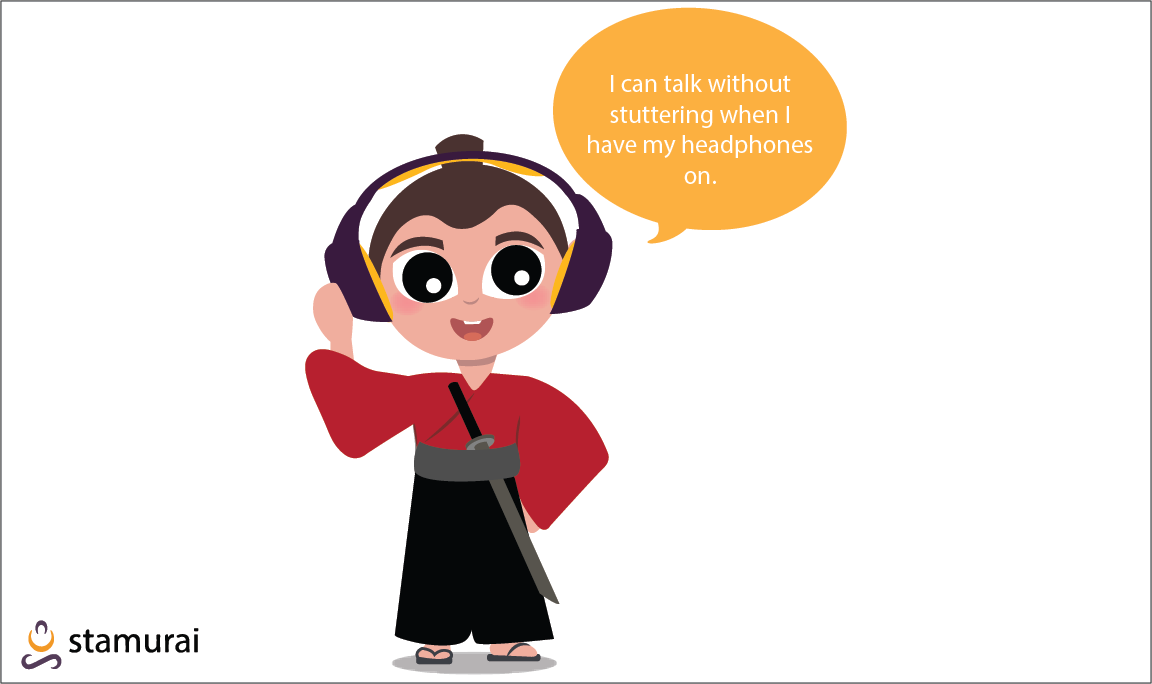"I don't stutter when there's a lot of noise," "I speak without stuttering when I can't hear myself speak" – no matter how bizarre these situations sound, it is true that people who stutter (PWS) can indeed speak fluently when they can't hear themselves speak.
Scientists believe that inadequate or faulty auditory feedback monitoring may be responsible for the precipitation of stuttering. Alterations in auditory feedback like delayed auditory feedback (DAF), and frequency altered feedback (FAF) have been used to treat stuttering for quite a few years.
Recognized speech therapists and researchers agree that blocking auditory feedback may reduce or completely remove stuttering.
Sadly, the neuroscience behind the cessation of stuttering as a result of auditory feedback blocking remains unknown.
According to Dr. Paul Sowman from Macquarie University, Australia, "anything masking the sound of one's own voice can induce fluency temporarily."
What's The Link between Auditory Feedback and Stuttering?
A recent study by Fiorin M, Marconato E, Palharini TA, Picoloto LA, Frizzo AC, Cardoso AC, et al. shows that stuttering has a strong link to the deficit in the modulation of the cortical auditory system. Inefficient auditory feedback monitoring results in neurodevelopmental stuttering.
The test results showed that people with severe and moderate stuttering benefited from masked auditory feedback.
Masking the sound of their own voice reduced the number of stuttering-like disfluencies in both groups.

Quote: Masking auditory feedback can reduce the disfluencies in one’s speech
Masking auditory feedback significantly reduced the disfluencies of the people who stutter severely. Masking also reduced the flows of syllables and words-per-minute among the group of individuals who stutter moderately.
In 2015, Adam Jacks and Katarina L. Haley published a study on the auditory masking effects on speech fluency among people with apraxia of speech (AOS) and aphasia (APH). They conducted a study on 10 neurotypical individuals and 10 individuals with AOS/APH.
Both AOS and APH impair an individual's ability to produce smooth speech. AOS and APH may result in injuries or neurodevelopmental causes similar to stuttering. In many cases, both conditions co-exist.
Disfluent speech is a characteristic of AOS and APH. Darley (1968) described AOS as a disorder that "sounds much like stuttering." Repetition is a common disfluency among individuals with apraxia of speech.
The results of this study prove that masking auditory feedback induces and increases fluency among individuals with AOS and APH.
Any condition overriding the affected individual's auditory feedback monitoring may induce fluency.
How Does Masking Auditory Feedback Reduce Stuttering?
Although the exact reason for the temporarily induced fluency is largely unknown, experts have stated that stuttering is associated with a faulty auditory feedback process. When a person hears themselves stutter, their brains automatically try to correct the speech by increasing the rate of syllables/words produced per minute.
Masking the auditory feedback helps in overriding the auditory feedback. Masking can be by wearing noise-canceling headphones and playing music to drown out one's voice.
One can try speaking with headphones on when they have to give a presentation or speech. We can see a popular rendering of the concept in The King's Speech where Colin Firth is urged by Geoffrey Rush to read Shakespeare out loud while listening to music on headphones.
However, masking is not always a practical option, especially when conversing with people. Masking auditory feedback is a temporary solution to stuttering since it induces fluency as long as the person is unable to hear their own voice.
Why Masking Auditory Feedback Isn't The Ideal Solution For Speech Disfluency?
Stuttering is a neurodevelopmental condition. It does not have a permanent cure. Currently, there is no medication for specifically treating stuttering.
Stuttering can make you feel helpless and angry. It might make you believe that you are losing control of your speech. Even though there's no magic pill that can remove your repetitions, prolongations, and blocks, you can gain control of your speech back.
Masking auditory feedback is a technique that you can use for specific situations like giving online lectures, or speaking to a large audience. In social situations, you need to hear what your listeners are saying. Putting on headphones to mask the sound will create a communication barrier. Instead, you can try DAF along with a combination of different speech exercises to reduce your stuttering in the long-run. Currently, there are several apps like Stamurai that offer speech exercises and DAF tools that you can access while sitting in the safety and comfort of your home.










